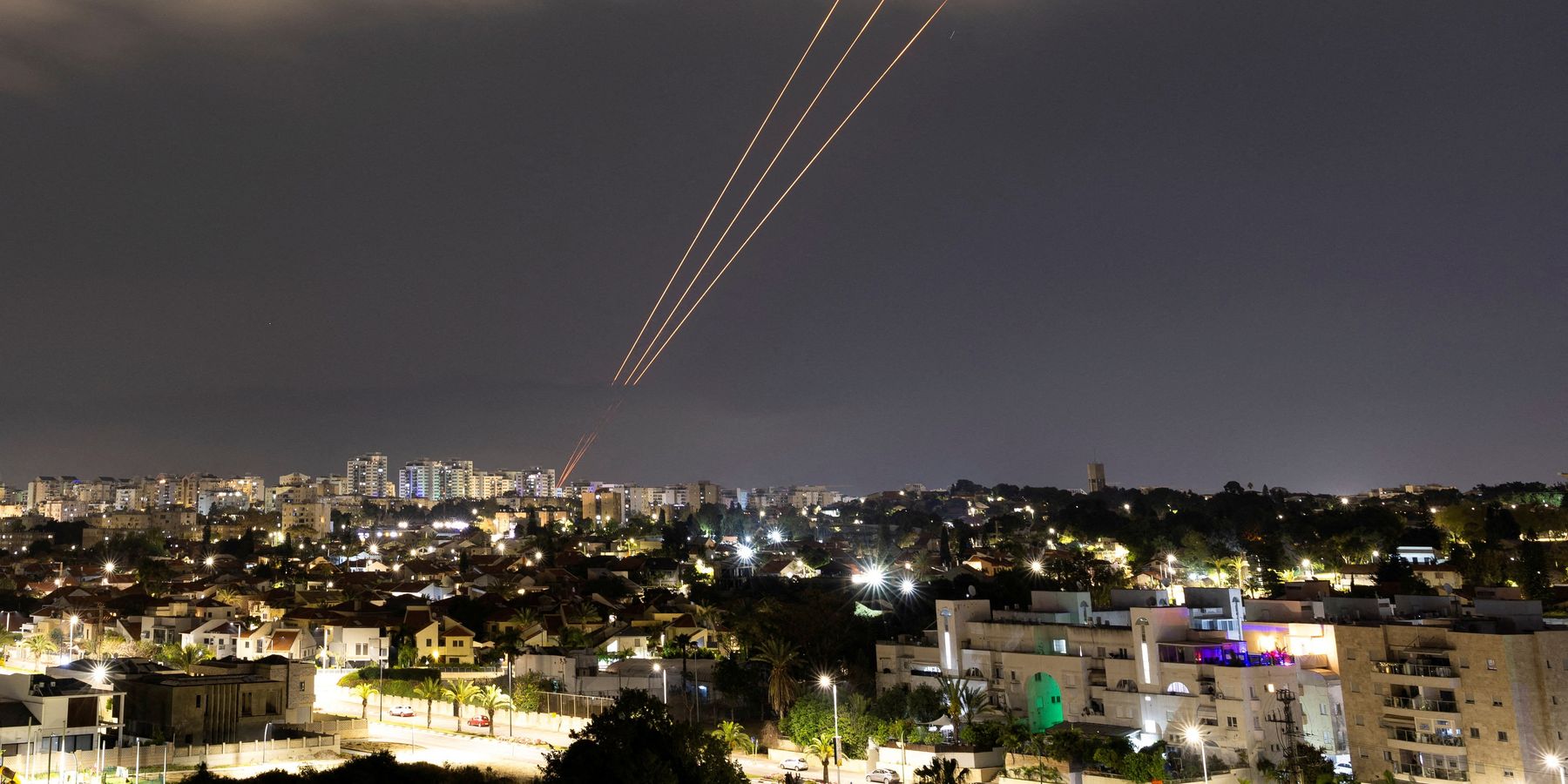UPDATE 4/14: Iran launched some 300 missiles and drones at Israel overnight. Israel reports that "99 percent" were intercepted, with U.S. help, and only "minor damage" to an Israeli air base had been sustained. Reports today indicate that the Biden administration on Saturday night had urged the government, led by Prime Minister Benjamin Netanyahu, to refrain from retaliatory strikes so not to risk escalation of war between the two counties. For its part, Iran said its own retaliation for the killing of seven Iranian officials, including an IRGC commander, in the April 1 consulate strike in Syria was "concluded" but would hit back harder Israel decided to launch further attacks.
The full scope and impact of Iran's retaliation for Israel's bombing of the Iranian consulate in Damascus will not be fully known until later this evening.
As of now, the Iranian response, telegraphed for weeks, appears choreographed to demonstrate resolve and restore a sense of deterrence, but without escalating matters further.
Whether it will achieve this objective depends to a large extent on the damage Iran inflicts on Israel. If Israel, the U.S., and the UK manage to intercept the overwhelming majority of the Iranian drones and missiles, Iran may end up embarrassing itself and lose further deterrence, even though it crossed the red line of attacking Israel directly from Iranian territory.
If the damage it inflicts is significant, it may not only elicit further Israeli escalation but also greater American involvement in the war.
As such, Iran's retaliation is immensely risky, particularly since it clearly seeks to avoid a larger war while the Netanyahu government in Israel does see benefit from such an escalation.
It should be noted that Israel attacked the Iranian consulate without giving the U.S. a warning, even though it likely would end the U.S.-Iran truce and restart militia attacks against American troops.
Despite endangering the U.S., President Biden has once again decided to show ironclad support for the Netanyahu government, despite how its actions risk bringing the US into war.
What is fundamentally problematic about Biden's approach, is that all of the pressure is on Iran not to respond, combined with zero pressure on Israel, not to provoke this escalation in the first place.
Many of us had warned from the outset of the Gaza war that Biden needed to press for a ceasefire in order to avoid a regional escalation that could draw the US into the war. Instead, Biden vetoed three UNSC resolutions demanding a ceasefire and undermined a fourth that he allowed to pass by erroneously claiming that it was non-binding.
Biden's primary responsibility is to keep America secure and out of unnecessary wars. Had he pressed for a ceasefire from the outset, America would not be on the cusp of yet another senseless war in the Middle East right now.
















